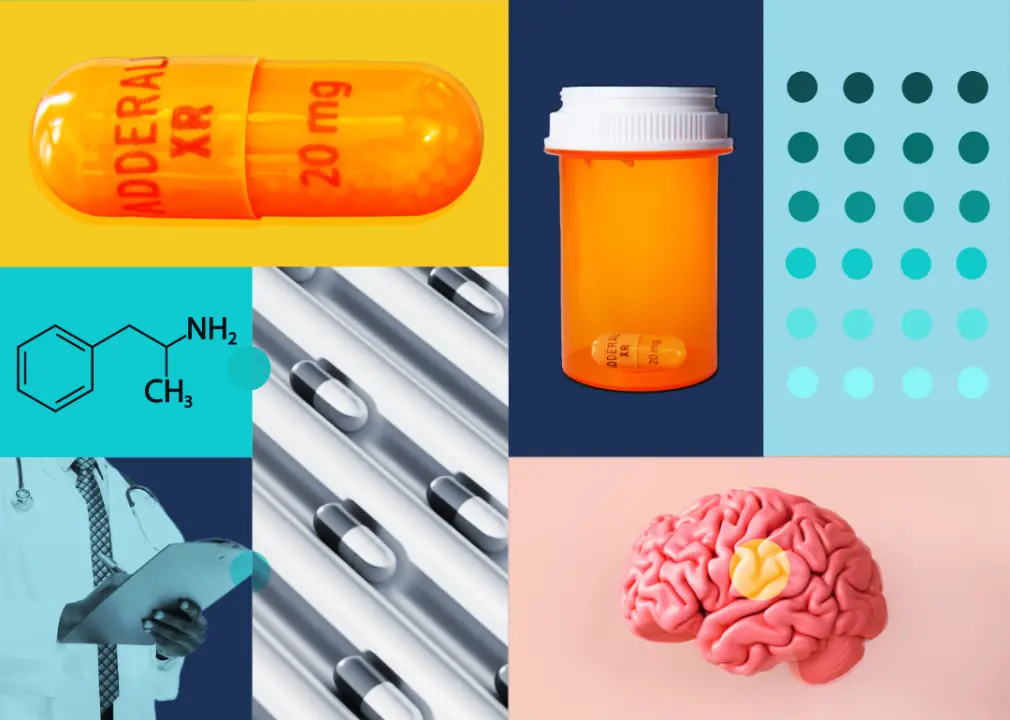Same Day Online ADHD Diagnosis
ADHD assessment?
Living without regular access to the commonly prescribed ADHD medicine Adderall is "like living neck deep in cold molasses," said one Reddit user on a support forum for people living with attention-deficit/hyperactivity disorder. On the forum, the same user shared that the difficulties of filling prescriptions two years after the U.S. first reported shortages has caused a "depressing reality of very limited executive function can sometimes be a crushing weight that's hard to get out from underneath."
Unfortunately, as the shortage of Adderall announced by the Food and Drug Administration in October 2022 continues, more Americans have been feeling that "crushing weight." These delays have been attributed to supply chain and manufacturing issues, high prescription rates spurred by the growth in telemedicine, and limited production quotas. As many as 15.5 million adults and 7 million children navigate life with ADHD and are affected by these shortfalls daily.
ADHD Advisor examined data from the Drug Enforcement Administration and other sources to explore the rise in prescription stimulants and why this shortage is so concerning.
Michael Ganio, senior director of pharmacy practice and quality at the American Society of Health-System Pharmacists, told PBS that he understands the frustration of the shortfall. "Patients need a new prescription every 30 days. You can't get a 90-day supply. You can't even pay cash for a longer supply if you want to." Prescriptions cannot be transferred between pharmacies if stock is out, and a doctor must reissue a new script.
This monthly relay of administrative hurdles to secure medication is trying for people with ADHD who often have difficulties with "executive functioning," a type of focus needed for things like making plans, adapting to new ones, and solving problems.
Russell Barkley, a psychologist, told STAT News that ADHD is the "most treatable chronic health disorder in the world," saying that stimulant drugs relieve 80 to 90% of patients of ADHD symptoms. Stimulant medication is often the first line of treatment for people with ADHD, and they're also sometimes used for binge eating and narcolepsy disorders.
Without these medications—like Adderall, which releases extra dopamine and norepinephrine to the brain—people with ADHD are more likely to experience adverse outcomes, like impaired social and emotional behaviors, increased substance or alcohol abuse, accidents, or premature death.
.webp)
More Americans being prescribed stimulants
Between 2012 and 2022, stimulants dispensed in the U.S. increased by 57.9%, according to a report commissioned by the DEA. Three times more stimulants were dispensed for people aged 31 to 40 and those 71 to 80 years old. In 2022, women also received more stimulants than men for the first time since 2012.
According to a report issued by the Centers for Disease Control and Prevention, nearly a third of adults diagnosed with ADHD treated it with stimulants in 2023, but more than 7 in 10 of them reported difficulty filling prescriptions due to unavailability.
The classification of stimulants is a significant variable in the domino effect that caused the ongoing shortages. The FDA approves the use of these drugs to treat ADHD; however, the DEA classifies stimulants as Schedule II medications since the ingredients in these drugs create a high potential for abuse and dependence.
These tightly regulated drugs are overseen by the DEA, which decides how many Schedule II drugs can be produced each quarter and allocates production quotas for each manufacturer.
But if there's a hiccup in production, a telehealth company that offers prescriptions shuts down, or a manufacturer encounters labor shortages, the FDA and DEA cannot quickly redirect unused quotas. According to a joint letter issued in August 2023, these government bodies cannot require pharmaceutical companies to "make a drug, make more of a drug, or change the distribution of a drug."
Compounding this issue, the rates of stimulants prescribed by telehealth services rose from 1% in March 2020 to 10% in April 2020 after lawmakers permitted virtual prescriptions for Schedule II drugs when patients couldn't see their doctor face-to-face during the COVID-19 pandemic. For ADHD patients, telehealth prescriptions save time since the Schedule II classification means they must meet with their prescriber every 30 days to get the next month's supply.
Though stimulants prescribed through telemedicine have declined steadily since 2020, their use continues to be higher than pre-pandemic levels, indicating a continued need by a sizable population. This telehealth flexibility may soon be revoked by the end of 2024, however, as lawmakers consider ways to curb drug misuse and addiction.
.webp)
As demand outpaces supply, prescriptions are harder to fill
In September 2024, the DEA was finally able to increase quotas for the production of other drugs that help curb ADHD. Interventions like these help ease the demand and allow patients to be diagnosed responsibly and through legitimate means.
Yet, patients who still struggle to get their ADHD prescriptions filled desperately seek alternative means to acquire medication, even resorting to questionable asks on dating apps. While these methods may sometimes provide the patients access to the medicines they need, patients should be wary. The CDC warns that counterfeit pills in illegal drug markets are prevalent and could unexpectedly contain substances like fentanyl that significantly increase the risk of a patient overdosing.
To navigate future disruptions to ADHD medicine, the CDC recommends scheduling an appointment with prescribers as soon as possible before running low on supply. Patients can also troubleshoot with their health care provider and pharmacist.
Reddit users on an ADHD forum suggest using independent pharmacies that may have fewer stock issues than mainstream retailers or asking the prescriber for higher doses that patients can then lower the dosage on personally—only if the medicine is safe to cut. One user suggested physically bringing a paper prescription to pharmacies to see if they can fill it. Patients can also switch to less common ADHD medication. While these are all strategies patients have used, please seek professional advice from a qualified clinician to address your particular concerns.
Ideally, the future holds expanded treatment for people with ADHD apart from just stimulants. The FDA stated that it supports the development of alternative treatments, such as nonstimulant drugs or nondrug options like game-based digital therapies for children to improve their attention.























